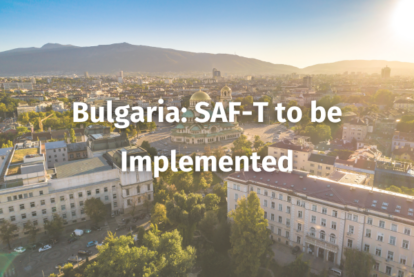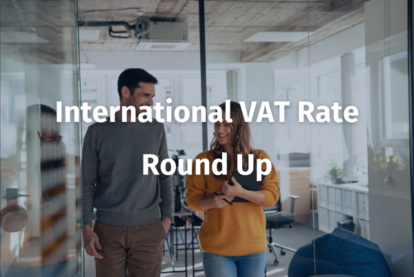Mandatory B2G E-Invoicing 2019 Updates
From 17 April 2019, it is mandatory for public administrations in Europe to be able to receive and process invoices in a standard format electronically from their private suppliers (B2G) in accordance with Directive 2014/55/EU.
Many member states have already adopted mandatory B2G e-Invoicing, such as Italy, Slovenia, Spain Denmark, to name a few.
Get our monthly VAT guide to ensure you never miss another VAT update!
Germany
Germany is currently carrying out pilot tests that will set up its national e-Invoicing platform. The invoicing platform will be called ZRE (Zentrale Rechnungseingangsplattform des Bundes) and will act as an intermediary between suppliers from public administrations and central public entities. HMRC had identified two situations where this rule is not being enforced:
1. Toll operators – toll operators import and distribute the goods to their customers but they do not take legal ownership of the goods. Toll operators to pay import VAT but this does not entitle them to use that as a deduction in their own VAT liability as the toll operator is not the owner of the goods. The owners of the goods are the customers and they should reclaim the VAT either through their UK VAT registration or a with a 13th Directive VAT reclaim.
2. Sales before importation – Where a business sells the goods just before importing them into the UK so the ownership title has passed to the new owner. The correct procedure is for the new owner of the goods to reclaim the import VAT on the C79 (the import VAT certificate required for the deduction of the import VAT) and not the previous owner. In both the above cases, the C79 import VAT certificate, should declare the owner of the goods. HMRC accepts that as previous guidance was not clear and they will not pursue historical VAT deductions. HMRC will give affected companies until 15 July 2019 to make appropriate amendments to their systems.
India
In India, it has been announced that there is a possibility e-Invoicing will be introduced through the GST portal. If implemented, this will help streamline the indirect tax system and will clamp down on tax evasion. A committee has been set up to study the current systems in other countries such as South Korea and Italy. This committee will work to examine and suggest the threshold limit for this new proposed system. It is thought that with this new system, businesses will issue invoices/bills directly via the GST Network. This data will be instantly available to the authorities. Then the sales invoice will be assigned a unique number and be issued to the customer. This will then be reported in the GST return. An initial report outlining the proposals will be produced in the coming months. We will keep a close eye on this topic and we will update you when we know more.
Poland
The Polish government is working on a central e-invoicing platform (PeF) similar to that up and running in countries such as Spain or France based on the deadline established by the Directive 2014/55/EU. The member state is working on its own e-Invoicing platform that will allow receiving and sending structured electronic documents. The PEF portal (Platforma Fakturowania Elektronicznego) is set up for voluntary use as of April 2019.
Portugal
Portugal will require public administrations to engage in e-Invoicing with its suppliers and service providers. The Public Administration Shared Services Entity, eSPAP, will be the coordinating body for the rollout of e-Invoicing in Portugal. Mandatory adaptation of public administrations – by 18/04/2019, Portuguese public administrations and institutions should have their information systems adapted to the e-Invoicing model. This deadline extends until 18/04/2020 in the case of local public administrations. The requirement for suppliers (large companies) – the deadline for e-Invoicing issuance by this group of companies is April 2020. The requirement for SMEs and micro-businesses – the deadline for adoption by companies not assigned to the previous group is 31/12/2020.
Sweden
e-Invoicing with Swedish central government agencies has been mandatory since 2008. From 1 April 2019, contracting authorities and their suppliers must adapt to the receipt and issue of electronic invoices. This means that the authorities will no longer accept invoices in PDF format from this date. To facilitate this obligation, public entities must provide their own portals to suppliers from where they can send their invoices. More than 200,000 suppliers are estimated to be affected by this obligation.
If you require more information on any element of e-invoicing or how Taxback International can support your business, get in touch today.
We know that Indirect taxes such as VAT and GST can have a huge effect on your business. As VAT rates change sporadically keeping yourself informed can be difficult. Compliance is always crucial. That’s why our Indirect Tax Experts share their hand-picked news stories every day that you need to know. From breaking news to VAT changes and new EU legislation. We know that relevant information means better decision making. We aim to be your number 1 source for VAT and GST news.



